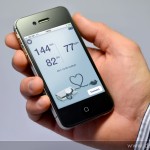 Health apps are coming onto the market at an incredible pace, but the jury largely remains out as to their effectiveness in improving our health. For instance, a study conducted last year found that there were promising early results in areas such as weight loss and smoking cessation, but less evidence to suggest that wearable devices had a noticeable and long-term impact on physical activity levels.
Health apps are coming onto the market at an incredible pace, but the jury largely remains out as to their effectiveness in improving our health. For instance, a study conducted last year found that there were promising early results in areas such as weight loss and smoking cessation, but less evidence to suggest that wearable devices had a noticeable and long-term impact on physical activity levels.
There was also little real evidence to suggest that the devices were effective in controlling diabetes, blood pressure or cholesterol levels.
Devising the right experiments
Of course, a major part of the challenge is that health apps aren’t really particularly well suited to traditional randomised control trials. A recent paper suggests that a useful alternative could be the “micro-randomised trial” can be a useful alternative.
These are where participants are randomly assigned a possible treatment that they can take several times each day. As such, each person must be randomized hundreds, or even thousands of times during the course of the study.
“These trials will provide evidence regarding in which real-time settings wearable devices should provide treatments to help you and me, and in which settings these treatments will only aggravate us,” the author says.
Making good health a chore
Of course, even when studies have been conducted, the results are often mixed. For instance, a recent study from Duke University suggests that what benefits are derived from the apps can often come at the cost of enjoyment, especially in areas such as fitness and exercise monitoring.
“In general, tracking activity can increase how much people do,” the authors say. “But at the same time, measurement has these pernicious effects. Enjoyable activities can became almost like a job, by focusing on the outcomes of things that used to be fun.”
The results emerged across six experiments whereby participants tracked their behavior on apps and recorded their enjoyment levels as they went. It transpired that whilst people generally became more productive in each task, their enjoyment levels dropped. What’s more, this outcome emerged even when participants actively chose to use the apps.
“We’re curious creatures and tracking information is very seductive, even for enjoyable activities,” the researchers say. “Simply making it available made them want to look at it, but the very people who self-select into measurement are the ones who are hurt by it.”
This often led to less participation when activities were not being tracked, thus having an adverse affect on how much exercise might be done in future.
It emerged that not only did tracking activity distract us from the enjoyment aspect of the activity, it also draws our attention towards the output of it rather than the input, which subsequently undermines our motivation and happiness.
All of which suggests that measurement is not a panacea when it comes to improving our health and wellbeing.
“This doesn’t mean we should stop measuring our daily activity,” the authors conclude, “but we need to balance that increased productivity against our underlying enjoyment. For activities people do for fun, it may be better not to know.”
So, it would seem as though there is a little way to go yet before health apps really prove their worth in the marketplace. We’re at a stage right now where a huge amount of innovation is happening and new apps enter the market every day. The challenge now is to learn which ones work, and how, so that the whole industry can improve.